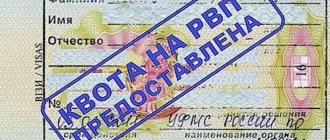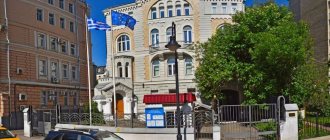Study abroad Education systems abroad Greek education system
- Types of Greek education
- Primary education in Greece
- Russian schools in Greece
- Secondary education in Greece
- Studying during the holidays
- Higher education in Greece
- Legalization of a diploma in Greece
- Cost of education
- Postgraduate education in Greece
Education in Greece is represented by three systems, which are divided into stages:
| Initial | Average | Higher |
| Preschool (kindergarten) | Basic average (required). Training in Gymnasiums | University |
| Compulsory primary (Primary schools) | Lyceum or vocational school | Technological |
Primary education in Greece
Preschool education in Greece
Attending kindergartens is not compulsory, but most Greeks take advantage of the opportunity to send their children to kindergarten. Reception is carried out from 4 to 6 years old, during the period of visiting children are prepared for entry into primary school, they help to reveal the individuality of children, and instill communication skills between them. Preschool educational institutions operate in Greece from 8 a.m. to 4 p.m.
Primary schools
Primary education in Greece is taught in Primary schools. It is mandatory. Admission to Greek schools is from 6 to 12 years of age. There are no entrance tests. Children gain knowledge in basic and scientific disciplines. There are no more than 5 lessons per week. After graduating from class, children take an exam, and so on every year for 6 years. After the last exam, a certificate of primary education is issued and sent to the Gymnasium.
Documents for admission
Visiting preschool educational institutions and schools is free. In order for a child to be accepted, parents must provide the following set of documents:
- birth certificate;
- certificate from the dentist;
- medical document on vaccinations (vaccination certificate);
- confirmation of place of residence (proof - receipt of payment for electricity at the place of residence).
Applying for a student visa
To stay in Greece, foreign students must obtain a special visa. To obtain it, you must contact the diplomatic mission of Greece and submit the following documents:
- a valid foreign passport;
- visa application form (a sample can be found on the official website of the Greek Embassy);
- two color photographs measuring 35 by 45 mm;
- a copy of your general passport;
- written confirmation of enrollment at the university;
- certificate of absence of infectious diseases;
- an extract from the applicant’s bank account confirming the availability of funds necessary for living in Greece (at least 6,000 euros);
- certificate of no criminal record;
- health insurance valid for the entire duration of your stay in Greece;
- papers confirming the availability of housing in the country (hotel reservation, rental agreement for an apartment or dorm room);
- receipt of payment of the consular fee (120 euros).
All papers must be translated into Greek and certified by a notary.
A student visa is issued for 12 months. Its validity can be extended without leaving Greece.
To cross the border and live in Greece, future students must have a special visa stamped in their passport.
Russian schools in Greece
There are several Russian schools located in Greece:
- A secondary school located at the embassy in Greece. Training is conducted on a paid basis, full-time, part-time, and external. Russian children can apply. Education in Greece for Russians is carried out according to Russian standards. Studying in Greece in Russian schools is conducted in Russian; studying Greek is mandatory and optional. At the end of the educational process, state exams (GIA) and the Unified State Exam are taken. Cost per year is about 2000 euros;
- Russian schools of additional education in Greece are most often attended by children studying in public schools in Greece, who have been abroad only for some time, or who want to better learn the history of Russia, literature, and the Russian language. Training is carried out in two shifts: morning (for children receiving basic education);
- after lunch (for children studying in public schools in the country of residence). Payment is made daily for each lesson. Cost approximately 5 Euro;
Documents upon admission
To enter any Russian school in Greece you need:
- a copy of a medical card indicating that the commission has been passed or a medical certificate;
- a copy of the birth certificate;
- personal file from previous place of study (diary)
Additionally they may require:
- copies of foreign passports;
- a certificate from the parents’ work, professionally translated into Greek, certified by a notary;
- residence permit documents.
Universities with free education
Studying at most Greek universities is free for local residents. Citizens of countries that are members of the European Union also have the opportunity to study for free. For all other foreigners, Greek universities are paid, including for Russian students.
But the cost of training is not high enough compared to other countries. And if a student has merit, a good grade or other advantages, then the university can accommodate and reduce tuition. The main thing is to study conscientiously, attend language courses and fulfill other requirements.
Secondary education in Greece
Secondary education in Greece is represented by several stages: training in a gymnasium, lyceum or vocational school.
Gymnasium
Basic secondary education falls into the compulsory category. Everyone over 12 years of age is admitted to the Gymnasium. Duration of study is 3 years. Exams are held at the end of each year. If the exam is "failed", the student is given the chance to retake it in September. Having “failed” the exam again, the child is retained for the second year.
Those who successfully complete the Gymnasium go to study at a Lyceum or vocational school.
Lyceum and vocational school
Education at the United Lyceum lasts 3 years. Those who have passed the exams at the Gymnasium and received a certificate of completion are admitted to the Lyceum without testing. The basis for moving to subsequent grades is the final exam.
Studying in Greece at vocational schools differs from Russian vocational schools. Great opportunities open up for Greek students; they become professionals.
The duration of training is 3 years, divided in stages:
- first – 2 years;
- second – 1 year.
The opportunity to receive evening education is provided. Then training in stage 1 increases by a year, in stage 2 by six months. To enroll in an evening course, you must indicate a valid reason: taking a certificate from your place of work.
Having successfully studied for the first year at the lyceum, you are allowed to transfer from it to a vocational school and continue your studies.
Colleges in Greece
Colleges in Greece for visitors from abroad offer the opportunity to obtain education in the field of hotel, tourism or management. The most popular college is Perrotis in Thessaloniki. This is a branch of the Farm School of America.
Documents for admission:
- copy of the passport;
- short essay (essay). describing the purpose of enrolling in college;
- birth certificate (copy);
- diploma;
- statement of grades;
- 6 photos;
- 2 cover letters.
Features of the Greek educational system
The Greek education system is traditionally divided into 3 cycles:
- elementary,
- average,
- higher.
The elementary level is represented by preschool institutions and schools, the middle level by gymnasiums, lyceums and vocational schools, the highest level by universities and institutes. Educational institutions at all levels are controlled by the Ministry of Education and Religion.
The school year begins in the second week of September and ends in early June. In universities, studies begin on September 1 and end on June 21. Classes are held from Monday to Friday during the week. Students' knowledge is assessed on a 20-point system, starting from the middle cycle of education. During the school year there are holidays around Christmas and Easter.
Teaching in educational institutions is conducted in English and Greek. In some schools, instruction is conducted in Russian.
To ensure the harmonious adaptation of foreign students to the educational system, as well as to overcome the language barrier, intercultural schools, represented by primary schools, gymnasiums and lyceums, operate in some regions.
The Greek educational system consists of three cycles of education - primary, secondary and higher.
Preschool stage
Preschool educational institutions are intended for children from 2.5 to 6 years old (2.5–4 years old - nursery, 4–6 years old - kindergarten). As a rule, their operating hours are 08:00–16:00. Nursery groups are usually formed on the basis of kindergartens.
The main goals of preschool education are the social adaptation of children and the development of learning skills that are necessary in school. Teachers and psychologists work with the groups, classes are conducted in a playful way. Particular attention is paid to moral, intellectual, physical and emotional development. There are also preschool educational institutions for children who require a special approach to education.
Preschools provide many opportunities for children's creativity
Attending preschool is not compulsory.
Video: Preschool Greek Education
Primary (school) education
Primary schools accept children from 6 years of age without entrance examinations. The training cycle lasts 6 years. Completing primary education is compulsory.
At the end of 6th grade, children receive a certificate of primary education, which is necessary for admission to the gymnasium.
The purpose of primary schools is to ensure the comprehensive and harmonious development of the child. The main disciplines are mathematics, social studies, art, modern Greek, physical education, additional disciplines are physics, geography, history, political science, sociology, foreign language (English, German, French, Italian optional). Additional subjects are introduced into the program from 3rd to 6th grade. The number of academic hours in a particular subject is determined by the teacher. Special classes are created for children with developmental disabilities. There are 5-6 lessons per day, each lasting 40 minutes. There are no exams in primary school.
In grades 1–2, students are not given grades. In grades 3–4 there is a three-point system (grades from A to C), and from grade 5 there is a ten-point system (from 1 to 10).
The church is not separated from the state, therefore great importance is attached to the Orthodox education of children in school.
Children are admitted to primary school from the age of 6
Incomplete secondary education
After completing primary school, children from the age of 12 are admitted to gymnasiums. This stage is also mandatory and includes 3 years of study.
Students deepen their knowledge in basic subjects and begin studying additional disciplines. There are usually 6-7 lessons per day.
At the end of each year of study, students take transfer exams. Children who fail the exams in June can retake them in September or remain in the second year if they fail to retake them.
Upon completion of the gymnasium, a certificate of incomplete secondary education is issued, which provides the opportunity for further education at a lyceum, technical school or college. Most graduates continue their studies in institutions of complete secondary education, and some begin to work.
Incomplete secondary education can be obtained in specialized schools, where the emphasis is on individual disciplines, for example, mathematics, theology, music, as well as in 4-year evening schools. Children with special needs are taught in specialized classes.
If a high school graduate has reached the age of 18, he can continue his course at the Vocational Training Institutes in some faculties. The study lasts 2 semesters, upon completion of the course a certificate of professional education is issued.
Complete secondary education
Institutions of complete secondary education - vocational schools (technical schools) and united lyceums. Worker training is carried out here. In structure, these institutions resemble Russian vocational schools. The form of study can be daytime or evening.
Admission is based on the results of entrance tests, the list of which is determined by each institution individually. Gymnasium students who have successfully passed their final exams are admitted without entrance examinations.
The period of study is 3 years (in the evening department - up to 4.5 years). During the first 2 years, students are taught basic subjects, and in the last year, highly specialized disciplines. After a one-year training cycle, students take exams for promotion to the next class, and after completing the entire course, a state exam. The minimum passing score is 9.5 on a 20-point system. If a student fails the exams, he can retake in September and, if unsuccessful, remain in the second year.
Lyceums are “horizontally” connected to vocational schools, so students can transfer between them.
Graduates of lyceums, colleges, and technical schools receive a certificate of complete secondary education and can continue their studies at universities or vocational training institutes or find employment in their specialty.
Higher education
You can get higher education in Greece at universities or institutes of technology. Education at universities is aimed at increasing the level of theoretical and comprehensive literacy of young people. Technological institutes provide mainly practical knowledge in the field of highly specialized disciplines.
The system, unlike the usual European one, includes 2 stages:
- training for 4, 5 or 6 years,
- Doctoral studies (2 years).
After completing 4 years of study, students pass exams and receive a diploma of higher education or are awarded an academic degree. Candidates for the doctoral degree must conduct scientific research and defend a dissertation. An alternative to doctoral studies is postgraduate study, which also lasts 2 years.
In branches of foreign universities, the education system includes 3 levels:
- Bachelor's degree (3–4 years),
- master's degree (2 years),
- Doctoral studies (2 years).
The main language of instruction is Greek. The academic year is divided into 2 semesters of 13 weeks each. After each semester there is an examination session, the duration of which is 3 weeks.
According to the current Greek Constitution, the creation of non-state higher educational institutions in the country is prohibited.
Each university independently determines the program of entrance examinations and the conditions for enrolling applicants. However, the general requirement is to have a high school diploma.
In Greek universities, teaching is conducted primarily in Greek.
Studying during the holidays
Studying in Greece for Russians who come on vacation during the holidays is possible by taking the following courses:
- learning English by teenagers;
- visitors from abroad learn foreign languages using an accelerated method;
- studying spoken English and professional vocabulary in the field of tourism and hotel business.
Education during the holidays is not limited to lessons in the classroom; students are taken on excursions, where they meet students from other countries, communicating with each other, increasing their level of language knowledge.
Courses during study and employment prospects
There are no additional courses provided for students during their studies.
Students with a residence permit have the right to work no more than 20 hours a week according to Greek law. Job offers can be found on university notice boards. Some specializations involve training alternating between theory and paid practice at local enterprises. During the internship period, students receive an average of about 500 € per month.
Graduates of Greek universities have a chance to get well-paid jobs in all countries of the European Union. The most popular specialties are in the field of management and hotel business.
Higher education in Greece
Higher education in Greece is available not only to Greeks, but also to foreigners. The advantages of a higher educational level are that a foreign student does not need to take entrance exams. The structure of higher education in the country is represented by studying at the university of your choice, or obtaining a higher technological education.
You can get into a Greek university on the basis of your certificate. There is one more important feature: all the documents that you collected for admission are submitted not to the university of your choice, but to a single admissions committee based on the Greek Ministry of Education. Please note that the commission’s work lasts only 10 days – from July 20 to July 30.
Rules for admission to the university:
- submit an application to the Ministry of Education with a small photograph;
- attach your certificate of secondary education, certified by a notary in the country from which the applicant came;
- provide a certificate of average grade point, which will be recalculated according to the 20-point Greek educational system;
- indicate a maximum of 20 faculties in which the candidate would like to study.
Later, the commission itself will decide whether you are worthy of studying at the chosen university or not.
Popular Universities in Greece
In total, there are 32 large universities in Greece. Each of them has passed all inspections and accreditations and guarantees high-quality higher education according to European standards. Universities in Greece are always ready to accept foreign students. The most popular are:
- National Technical University of Athens;
- Athens University of Economics and Business;
- Pantheon University;
- Athens Agricultural University;
- National University of Kapodistrias.
Students can choose to study at public universities or prefer private ones. There is also the opportunity to study remotely at the Greek Open University. Despite the fact that full-time education is still considered the most complete and high-quality, distance education is gaining momentum throughout the world.
National Technical University of Athens
This educational institution is recognized as the most prestigious university in Greece. Many foreign students want to study here. All professional areas are represented, and a system of additional education is developed.
Aristotle University of Thessaloniki
Among the applicants there are many foreigners who want to study at this university. It is famous for being the largest in the country. Almost one hundred thousand students annually receive knowledge of ideal quality here.
University of Piraeus
Considered a prestigious source of knowledge in information systems, business and economics. The Faculty of Computer Technology is famous all over the world for its technical equipment and impeccable teaching staff.
University of Crete
This university offers training in humanities in the fields of history and archaeology. Located on the island of Crete and is the only university here.
Legalization of a diploma in Greece
To have a diploma recognized as legal in Greece, you should contact the General Center for the Recognition of Diplomas from Foreign Educational Institutions (DIKATSA).
Stages of recognition:
- Collection of necessary documents.
- Waiting for the decisions of the DICATSA commission.
- Interview, passing the necessary subjects to confirm the diploma.
A list of necessary questions and documents can be obtained with the paper issued at Leoforos Mesogion 223. Then you need to pay “paravolo” - these are state fees at the National Bank of Greece in the amount of 120 Euros to the DICATSA account.
Then you should write a Statement of Responsibility, indicate the attached documents, and have it certified by the police.
ATTENTION: Documents submitted to DICATSA will not be returned.
Student reviews of Greek education
The educational system in Greece leaves much to be desired, if not a student from Cyprus, then he “eternally” returns home after 10 years (since they take one Greek language and enroll in the faculty they chose)… I have a lot of friends who I’ve been there for about 8 years now... there are, of course, those who fit into 4 years, but there are very few of them. As a result, all this costs parents more than if the child studied in Cyprus at a paid university...
elinaCY
https://russian-cyprus.org/viewtopic.php?f=5&t=8136
…There are many free programs for foreigners. As for Cyprus and Greece specifically, language comes first. With an excellent level of language, you will be accepted into the university and with a scholarship...
Olesya
https://russian-cyprus.org/viewtopic.php?f=5&t=8136
...Everything is really real and feasible! The most important desire is not to sit and be afraid!!! The country is very good, kind and welcoming! The language is easy to learn, just a little effort and everything will definitely work out!!!…
Vikos-Cocos St
https://vk.com/topic-177967_25286911
Video: reviews of a Russian student about studying in Greece
Despite the difficult economic situation, Greece remains a very attractive country for study. Students are provided with many opportunities that leading European universities are unlikely to offer.
- Author: Elizaveta Shulgina
Hello, my name is Lisa. I am well versed in the issue of immigration, as I often travel around the world. Rate this article:
- 5
- 4
- 3
- 2
- 1
(1 vote, average: 5 out of 5)
Share with your friends!











